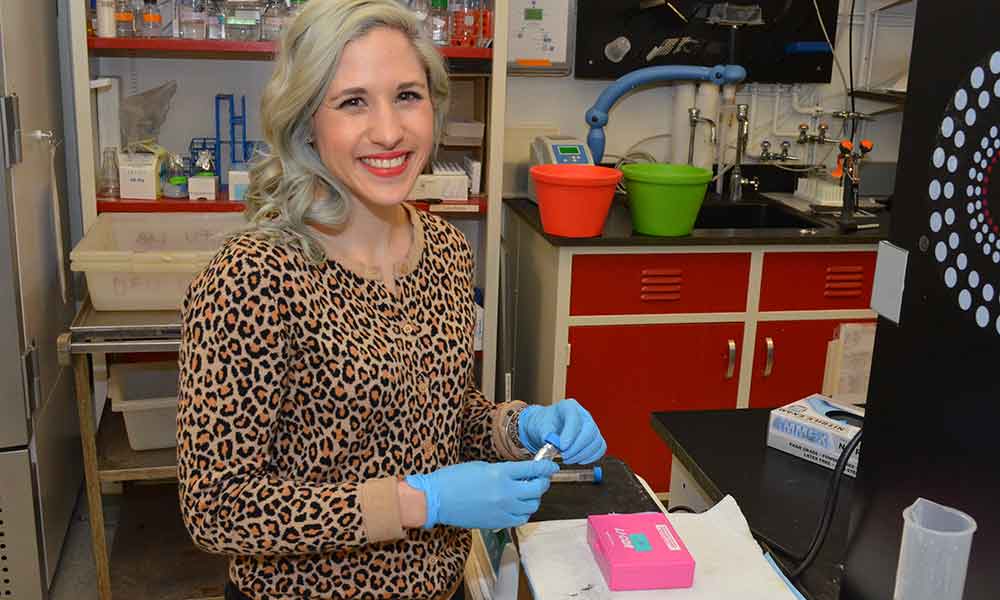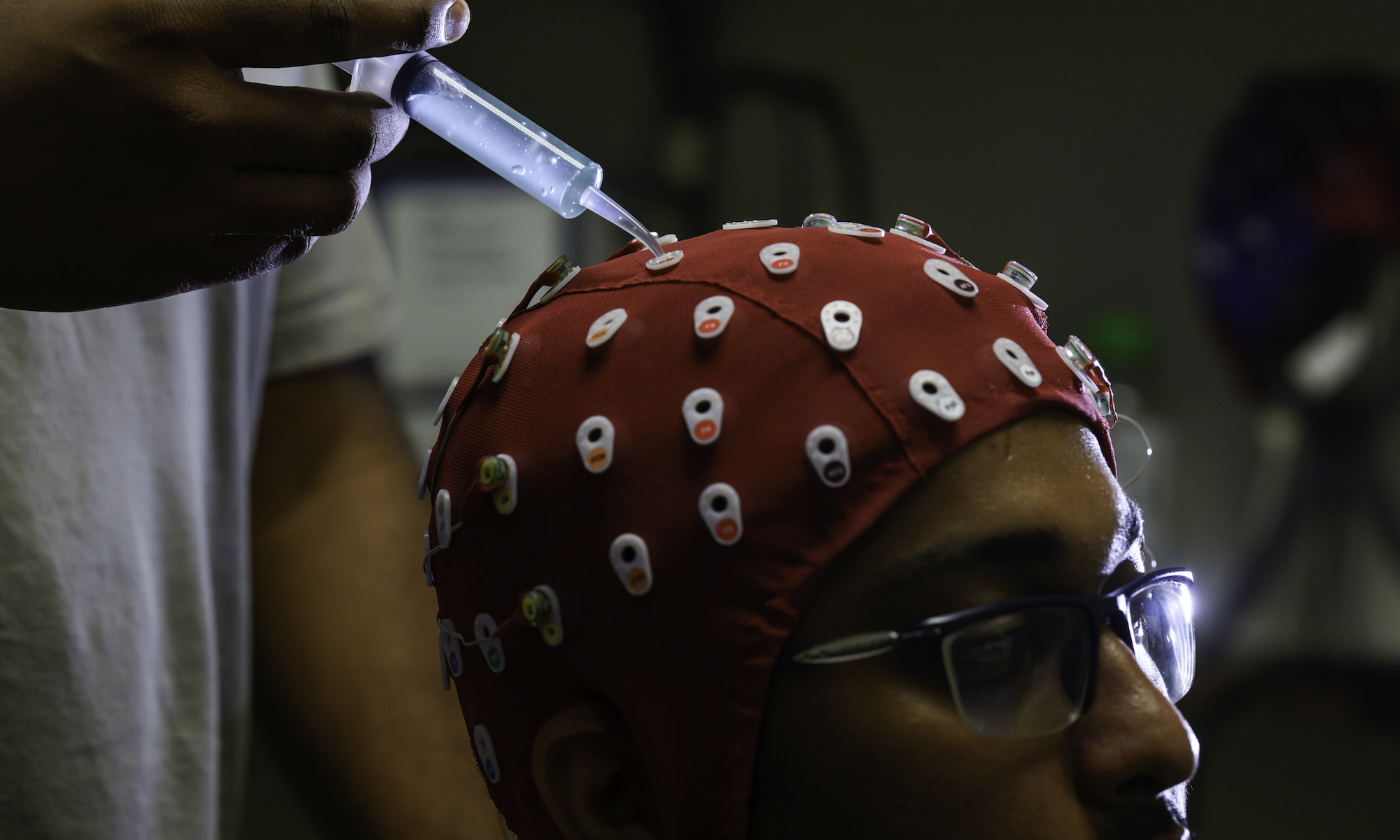Modify or Die: When Protein Translation Goes Awry
Jillian Ramos, Biology
There’s one thing you need to know to understand biology. it’s the central dogma here. And this is the idea of how information flows through cells.So, start with DNA. DNA contains our genes. It’s what makes you, you, and me, me. I like to think of it as the Book of Us.
RNA is transcribed from DNA. So, if DNA is the book of life, RNA is what is read out loud. Protein is translated from RNA. So, if RNA is what is said out loud, protein is the impact it makes. And the reason I’m saying this is because protein is more often the functional unit of the cell.
Another vital component in this process is tRNA. tRNA is necessary for protein translation. In recent decades, it has come to light that our genome is littered with modifications put on by proteins called enzymes. Now, these modifications have been shown to influence gene expression from DNA or influence the function of a protein.
So, you can see these modifications changed how things are read, said, and the impact.
My lab studies tRNA modification and how it influences protein translation.
Specifically, I work with a population of people in Iran where 24 individuals in eight families have been identified as having intellectual disabilities due to a mutation in an enzyme that modifies tRNA.
Intellectual disability is defined as having a low IQ with a limited set of life skills, with an age of onset being under 18. So, the question remains: Why is it that a single mutation of this enzyme that modifies tRNA contributes to such a severe defect?
Well, I found in my research that this mutation causes enzymes to aggregate, meaning they like to stick together, and you can imagine that If a protein is sticking to itself, it is probably not performing its function correctly. And this was supported by isolating cells from the blood of these individuals.
I found that by testing this enzyme on tRNA made in the lab, that it wasn’t as active and when I looked their tRNA, it wasn’t as modified.
So, if you can go back to what I was telling you before: If you have reduced modification of tRNA, you’re probably not getting accurate protein translation. And that’s the next goal of my thesis, to determine which proteins are specifically impacted, and is it possible this could lead to a therapeutic, so we can make sure these proteins are making an impact?
So, going back to what I told you before: If DNA is being read, and RNA is being said, and protein is the impact, let’s not lose that impact and have it lost in translation.
Jillian Ramos showed exactly how to capture an audience’s attention – and hold it – at the University of Rochester’s third annual Three Minute Thesis Competition finals.
As a result, the PhD student in assistant professor Dragony Fu’s biology lab walked away with not only the $750 first place prize awarded by a panel of faculty judges, but the $250 people’s choice prize awarded by an audience that filled all but a few seats in the Class of ’62 Auditorium.
Not bad, considering this was Ramos’s first such competition, which limits presenters to just three minutes and a single slide. The object is to be able to clearly explain their work to a general audience. (Read more here.)
How exactly did Ramos do it?
She started with a catchy title: “Modify or Die – When Protein Translation Goes Awry.”
She then proceeded to explain, step by step, in novel ways that a general audience could appreciate and understand, the interactions of DNA, RNA, tRNA, proteins, and enzymes.
For example:
“DNA contains our genes. It’s what makes you, you, and me, me. I like to think of it as the Book of Us,” Ramos explained. RNA is transcribed from DNA. If DNA is the book of life, RNA is what is read out loud. Protein is translated from RNA. So, if RNA is what is said out loud, protein is the impact it makes.”
She described how a mutation in an enzyme that modifies tRNA has caused intellectual disabilities in 24 people in eight Iranian families. And how a goal of her thesis work is to find out exactly which proteins this impacts, and whether that could lead to a treatment.
“If DNA is being read, and RNA is being said, and protein is the impact, let’s not lose that impact and have it lost in translation,” she concluded – 2 minutes and 57 seconds after she started.
“I wanted to do this because I wanted to gain this skill,” she says. “I actually went into this just for fun, thinking this is something that’s beneficial to my scientific career.
“I have parents and friends who are not in science,” she adds, “and I oftentimes have to try to communicate to them what it is that I do. This finally got me to sit down and lay it out.”
Ramos says she got “tons, and tons, and tons of help” from “so many people in my department” who helped her practice her talk.
Parker Riley, a PhD student in computer science, received the second-place prize of $500 for his presentation, “Can a computer learn to translate without being taught?”
The competition is sponsored by the School of Medicine and Dentistry Center for Professional Development; the Arts, Science & Engineering Graduate Studies Office; the Graduate Student Society (School of Medicine and Dentistry); and the Graduate Student Association (AS&E).



